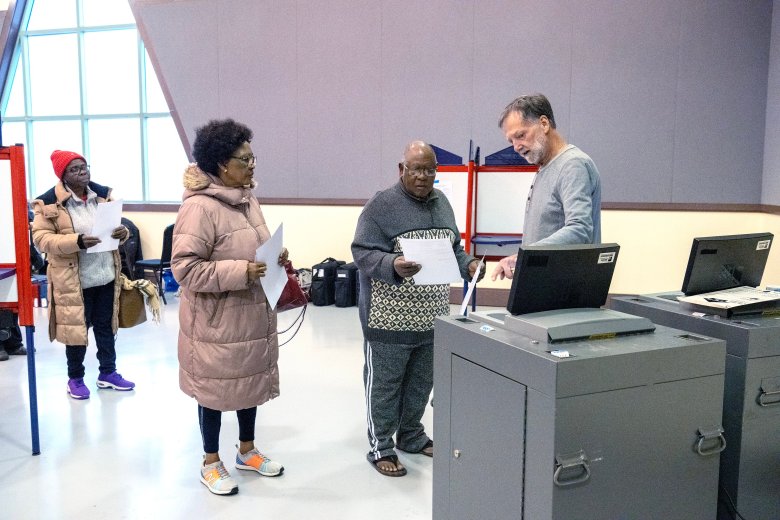
Turnout was steady and strong at many polling places across Maine on Tuesday as voters cast ballots on two major referendum questions and a smattering of municipal elections.
Mainers considered two statewide referendums: Question 1, which would have required voter ID, restricted absentee voting and made other changes to Maine’s elections, and Question 2, a so-called red flag law that would allow family members to request temporary removal of a person’s guns. On Tuesday evening, the Associated Press projected that Question 1 had failed, while Question 2 passed.
Many communities also held municipal elections, choosing mayors and councilors and deciding on other local issues. In Portland, residents voted by a wide margin to raise the minimum wage; in South Portland, voters approved a bond that will fund a new natural grass field at the high school; and in Scarborough, after years of back and forth, residents greenlighted two bond issues totaling $139 million to fund an overhaul of the town’s schools.
In many towns and cities, officials said Tuesday that voter turnout was higher than expected for an off-year election without major statewide or national candidate races on the ballot.
By Monday, the state had accepted more than 122,000 absentee ballots, according to the Department of the Secretary of State, and by Tuesday evening, that number had risen to 146,000 — nearly 131,000 of which were returned.
Secretary of State Shenna Bellows, the state’s top elections official, said this year’s absentee turnout was higher than in 2023, the last off-year election.
“That is a good indicator for strong turnout this year,” she said while visiting a polling place in Biddeford on Tuesday morning.
STEADY TURNOUT STATEWIDE
Voting started before dawn in Buxton, one of the first towns in Maine to open polls for the day. As the clock hit 6 a.m., poll workers started handing out ballots to the first dozen residents in line. A steady stream of cars pulled into the parking lot, their headlights cutting through the predawn darkness.
June Curtis stopped by on her way to work and was one of the first residents to feed the ballot machine. She never misses an election.
“I think right now, voting is more important than ever before,” she said.
Voting was strong throughout the day in Biddeford, where residents elected a mayor and a full slate of city councilors and school board members. Some of the 28 municipal candidates organized an Election Day food drive for the Biddeford Food Pantry, which is facing increased pressure to keep up with rising demand for assistance.
Turnout was steady also in Portland, where voters resoundingly passed a proposal to incrementally raise the city’s minimum wage to $19 an hour by a 62.7%-35.5% margin. And they chose to give incumbent Pious Ali a fourth three-year term as an at-large member of the City Council; he defeated political newcomer Sam Aborne, 60.6%-30.5%, in the city’s only contested council or school board race.
Portland voter Matt Erickson, 45, said the minimum wage referendum was the most important issue of the day for him.
“They’re asking for a livable wage, not an excellent wage,” Erickson said.
REFERENDUMS MOTIVATE VOTERS
Question 2 drove turnout in Lewiston, where some voters said they were thinking about the 2023 mass shooting in the city as they went to the polls to support the red flag law.
Outside of the Longley School polling place Tuesday morning, Gale Shannon said the referendum question hit close to home and is meaningful for residents who have continued to see evidence that such a law was needed before the shooting.
But Lewiston resident Glenn Therrian saw the proposal as a way “to start taking guns away from citizens.” He said he’s worried it could be misused for personal disputes, like a falling out with a spouse, rather than for legitimate instances of serious mental health concerns.
“Who’s the one to really say you don’t deserve your guns today?” Therrian said.
At 9:54 p.m., the Associated Press called the race for “yes” on Question 2 — making Maine the latest New England state to institute a red flag law.
Other voters said they were motivated by Question 1, which would have required photo identification at the polls, limited the number and location of ballot drop boxes, and made several changes to absentee voting, including an end to ongoing absentee voting and the practice of requesting absentee ballots by phone.
“The national push for voter suppression laws — I didn’t want to see that happen in Maine,” said Kevin Bush, 58, of Skowhegan, who voted against the proposal.
Pauline Veilleux, 76, of Winslow, said also she voted no on Question 1 because she wants “it to stay the way it is.”
“It’s going to prohibit people from voting,” she said after voting at the Veterans of Foreign Wars Post 8835.
Winslow resident Joe Works, 77, said he voted no on both statewide questions.
“I kind of want to leave things the way they are,” he said of Question 1. “It’s too restrictive as far as I’m concerned. (Question) 2, same thing: I think we just need to leave it alone.”
Question 1 was shot down by Maine voters, according to the Associated Press, which called the race at 9:54 p.m. with “no” ahead by a roughly 64%-36% lead.
HIGH WINDS, BUT FEW HICCUPS
Gusty winds — with wind speeds over 50 mph recorded in Portland — knocked out power to more than 28,000 Central Maine Power customers at one point on Tuesday. But the outages had next to no effect at polling places, while most residential households had their lights back on by Tuesday evening, the utility company said.
“Despite the windy weather in many areas of Maine today, no polling places so far have been directly impacted by power outages,” said Bellows, the secretary of state.
If there had been any outages, voting could have continued uninterrupted because Maine uses paper ballots: Any paper ballots that can’t immediately be fed into an electronic tabulator can simply be held in an auxiliary box and be counted later, Bellows said.
In the Kennebec County town of China, Town Clerk Angela Nelson faced different sort of power issue: The battery on the electronic tabulator there was dying — quickly.
Town officials contacted the secretary of state’s office and, in the meantime, placed some newly cast ballots in an auxiliary box just in case.
Ultimately, officials realized their problem had a simple fix: The tabulator machine just wasn’t plugged in all the way.
Still, Nelson said, “we were worried there for a few minutes.”
PASSION ON BOTH SIDES
Lines were short inside the South Portland Community Center on Tuesday afternoon, but Warden Jon Hartford said turnout was pretty steady all morning. Polls opened at 7 a.m., when workers let in the roughly two dozen residents who were ready and waiting outside, including a few who had arrived 25 minutes early.
Hartford said Tuesday’s turnout at the community center was on pace to potentially surpass 2023, when 2,400 off-year election voters cast ballots at the city’s largest polling place. By noon, 1,640 voters had already cast ballots Tuesday.
Hartford attributed the high turnout to South Portland’s municipal referendum questions on whether to include a new grass field or a turf field in a high school stadium renovation.
“There’s a lot of passionate folks on both sides of the issue,” Hartford said.
Terry Walker, 50, said he voted for the natural grass field because of its lower price tag, and because the synthetic turf would have to be replaced in about 10 years.
Both measures included plans to add permanent restrooms at the stadium, install a new track and put in new lighting. Voters chose the natural grass option.
When it came to his state ballot, Walker said he voted “no” on Question 1 because Maine’s rural makeup means many people need to vote by mail. During last year’s presidential election, almost half of all Mainers cast their votes absentee.
Anna O’Sullivan, 42, also voted “no” on Question 1.
“It’s scary when our government restricts voting access,” she said.
Outside in the lobby of the community center, Judith Borelli, the parent of a high school senior, oversaw a bake sale fundraiser all morning long.
“It’s been pretty steady all day,” Borelli remarked of voter turnout.
And that meant she sold a lot of baked goods.


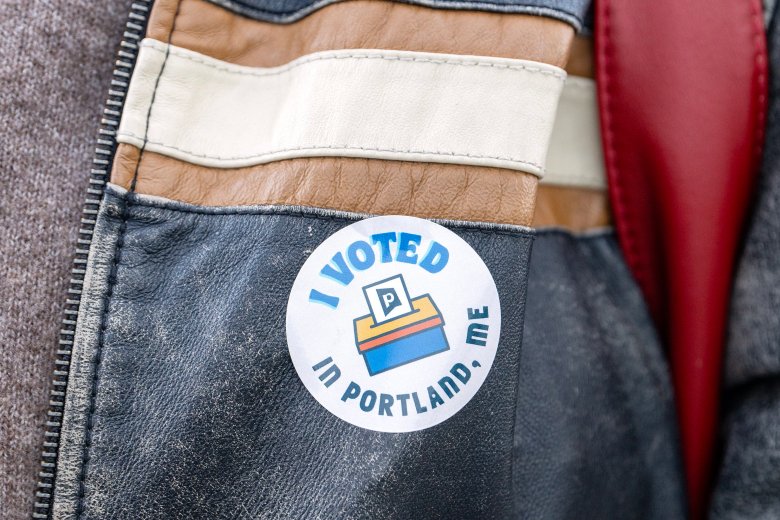
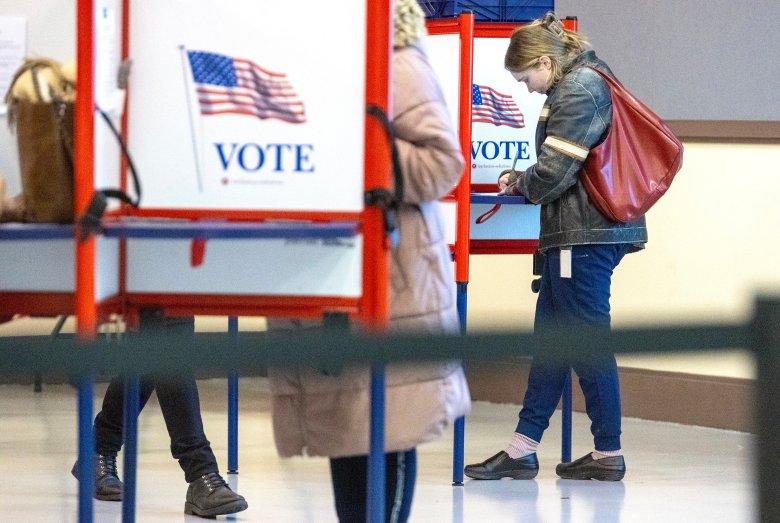
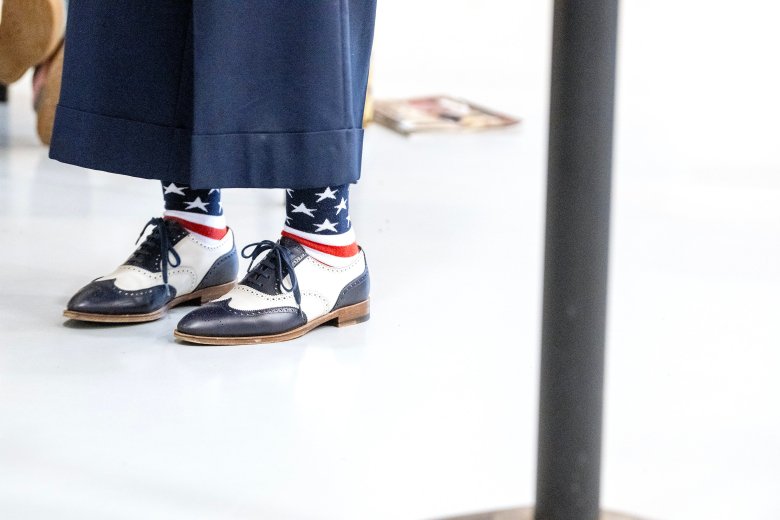

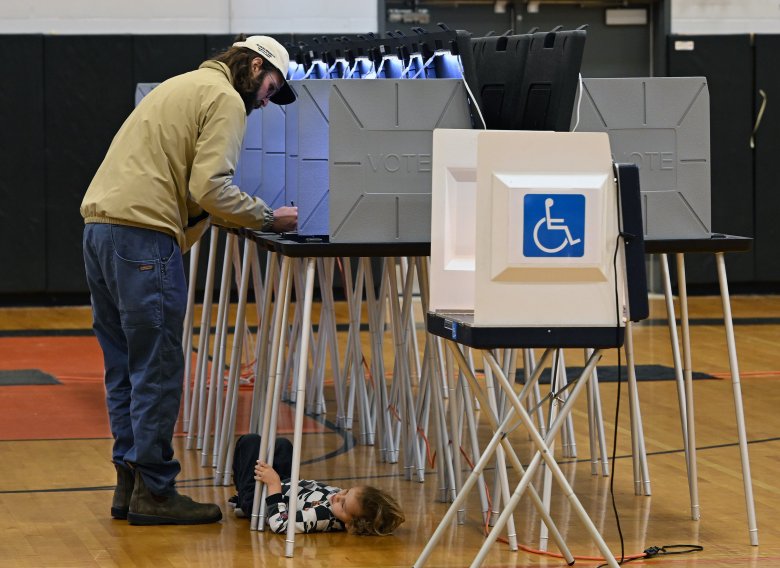
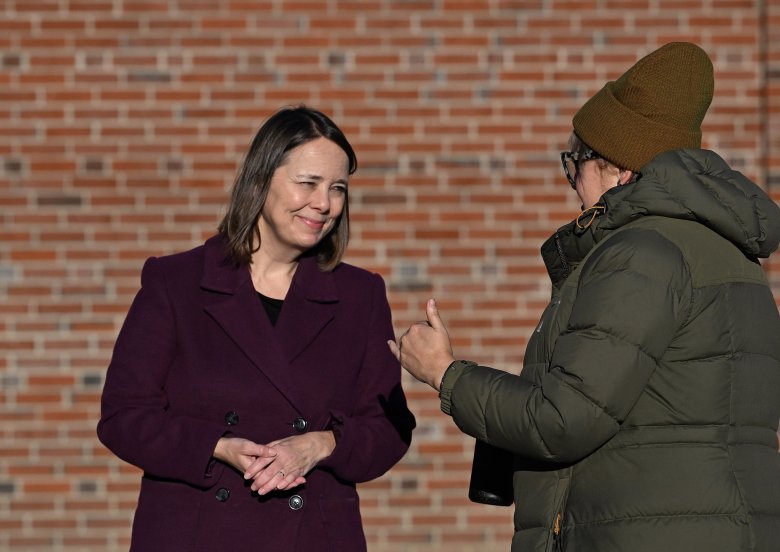
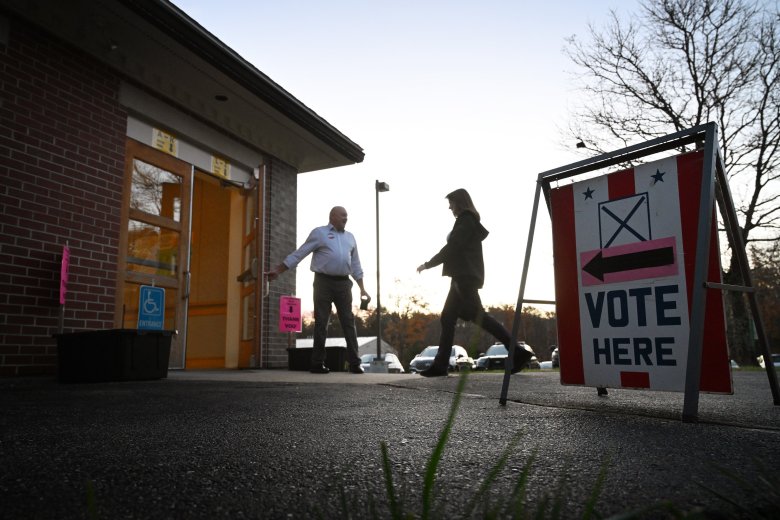
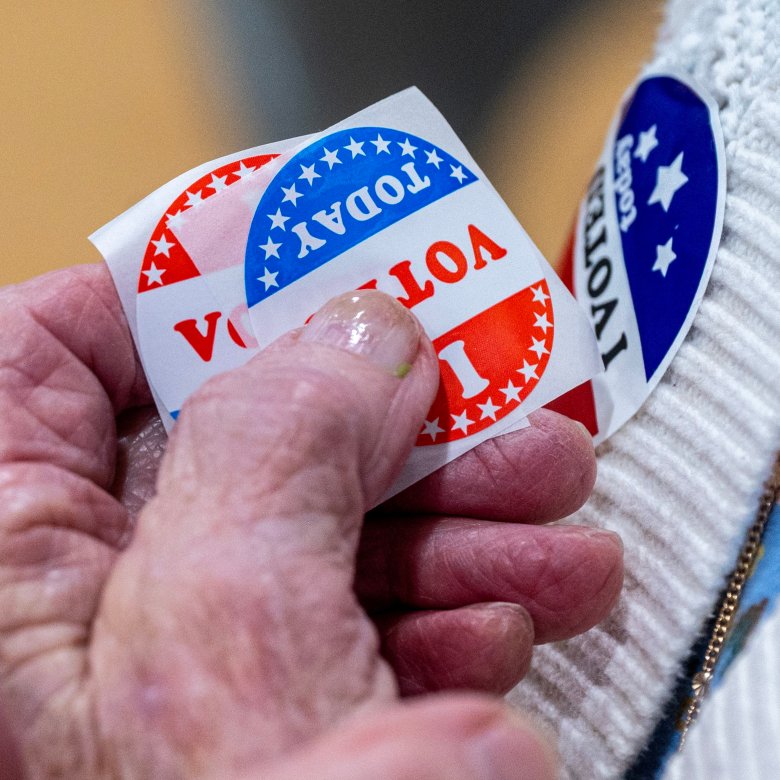
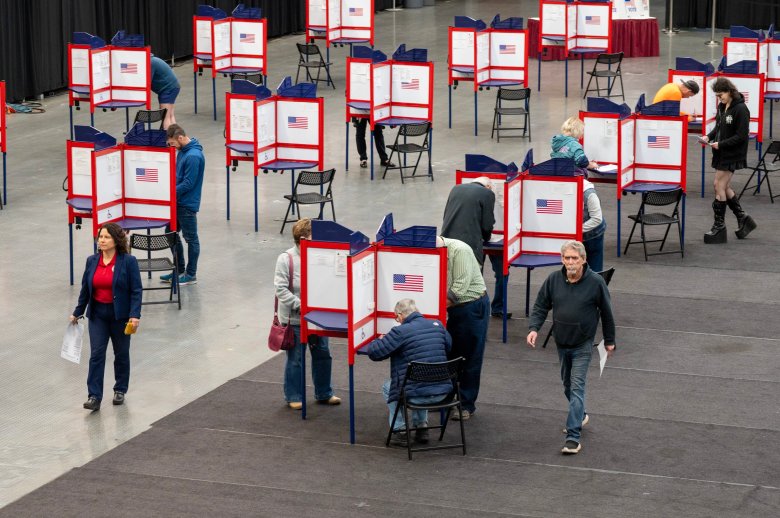
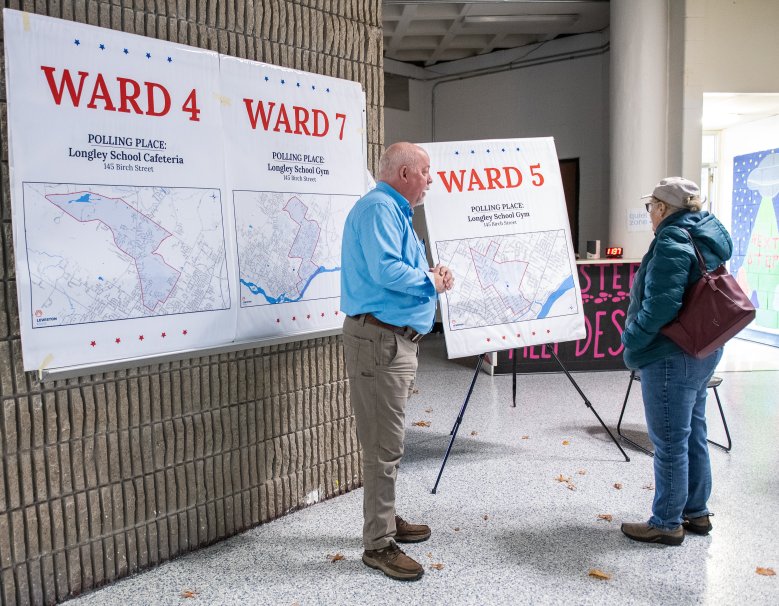

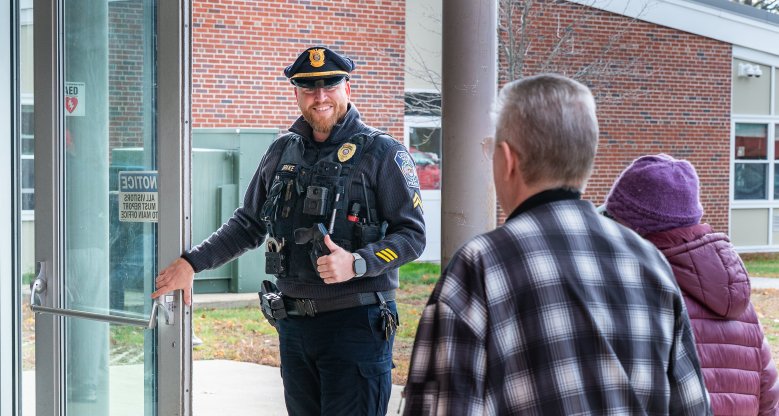
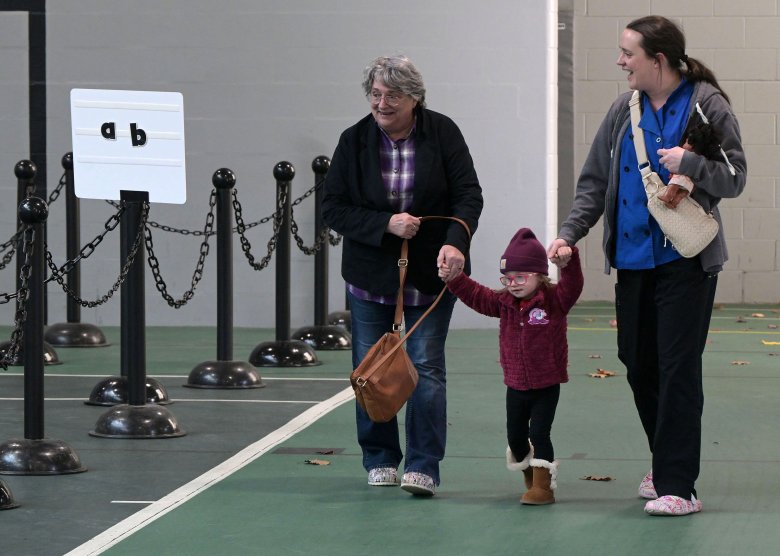
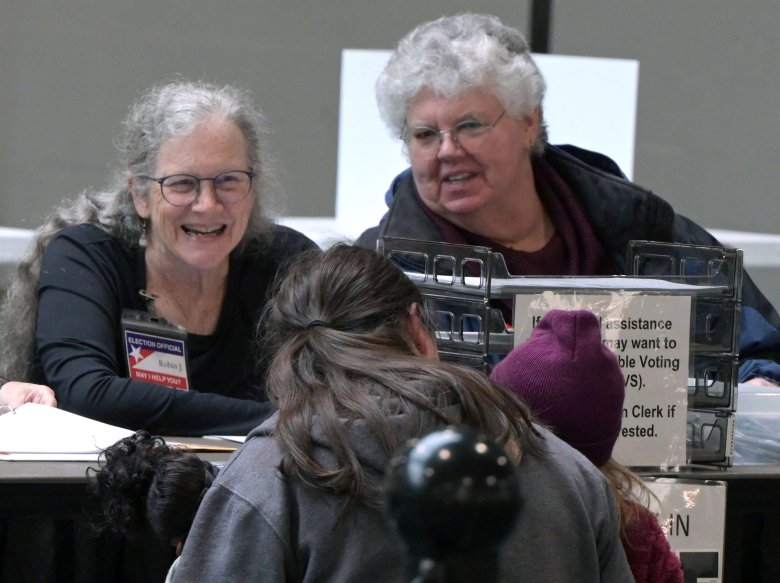
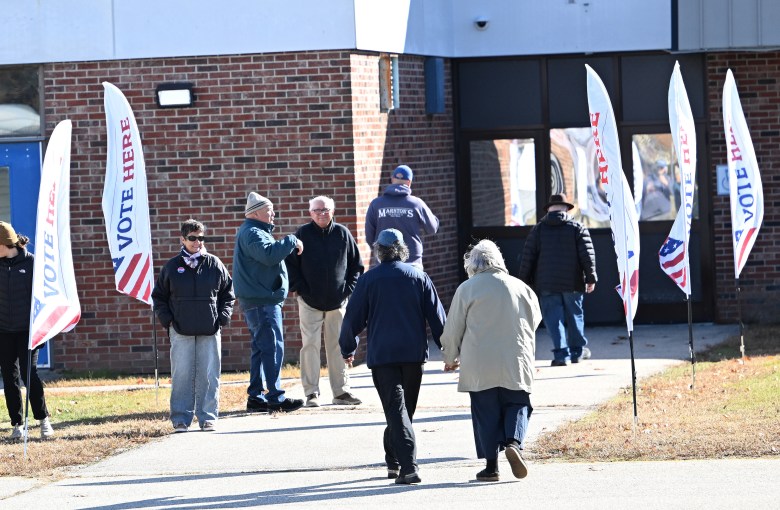
We invite you to add your comments. We encourage a thoughtful exchange of ideas and information on this website. By joining the conversation, you are agreeing to our commenting policy and terms of use. More information is found on our FAQs. You can modify your screen name here.
Comments are managed by our staff during regular business hours Monday through Friday as well as limited hours on Saturday and Sunday. Comments held for moderation outside of those hours may take longer to approve.
Join the Conversation
Please sign into your CentralMaine.com account to participate in conversations below. If you do not have an account, you can register or subscribe. Questions? Please see our FAQs.